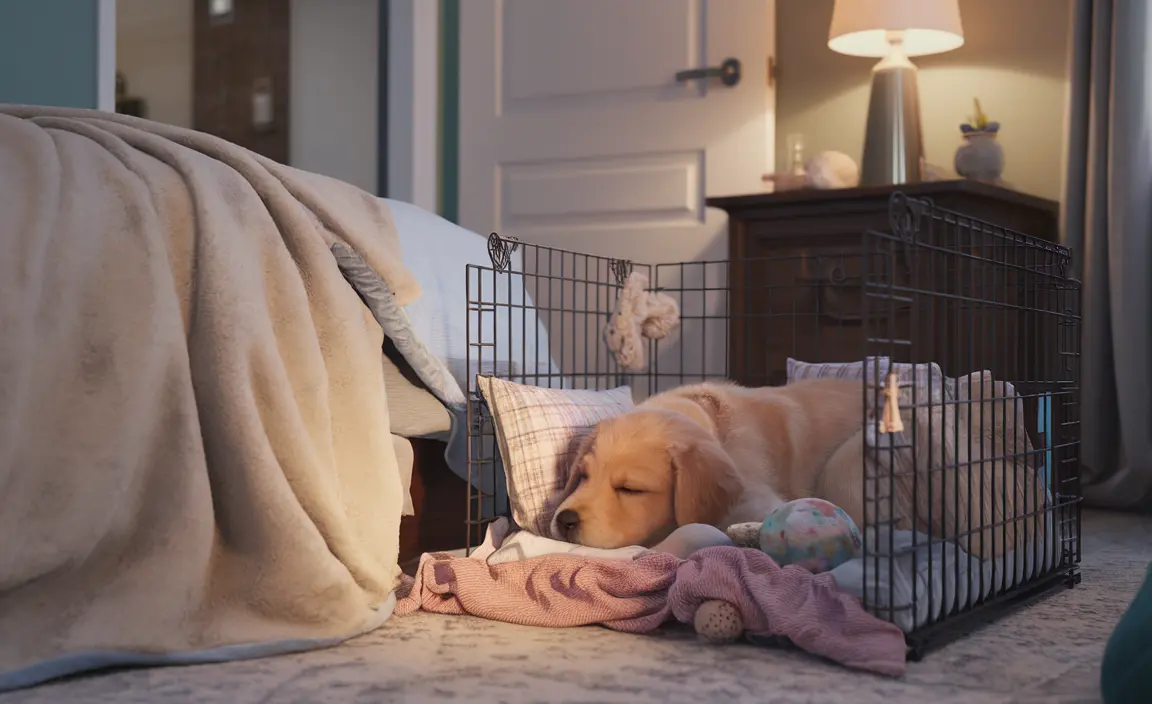Bringing home a new puppy is an exciting adventure, but the first few nights can be challenging, especially when your furry friend won't stop crying. If you're struggling with a puppy that whines and howls throughout the night, you're not alone. This guide will walk you through proven strategies to help your puppy feel secure and sleep soundly.
Nighttime distress is a common issue for new puppy owners, but with the right approach, you can help your little companion adjust to their new home and establish a peaceful nighttime routine.
Understanding Why Puppies Cry at Night
Puppies cry at night for several reasons: separation anxiety, unfamiliar environment, need for bathroom breaks, or simply feeling lonely. Young dogs are used to sleeping with their littermates and mother, so the sudden change can be overwhelming.
Emotional Factors Contributing to Nighttime Crying
- Separation from their original family
- Feeling vulnerable in a new environment
- Lack of comfort and security
- Instinctive need for companionship
Puppy Crying at Night: Effective Crate Training Techniques
Crate training is a powerful tool in helping your puppy feel safe and develop good sleeping habits. The key is to make the crate a positive, comfortable space that feels like a secure den.
Creating the Perfect Crate Environment
- Place the crate in your bedroom initially
- Use soft, comfortable bedding
- Cover the crate partially with a blanket to create a den-like atmosphere
- Gradually move the crate to its permanent location
Establishing a Consistent Nighttime Routine
Consistency is crucial when helping a puppy learn to sleep through the night. A structured routine helps reduce anxiety and teaches your puppy what to expect.
Key Elements of a Successful Nighttime Routine
- Set a consistent bedtime and wake-up time
- Provide a final potty break before bed
- Limit food and water intake close to bedtime
- Ensure plenty of exercise during the day
How to Get a Puppy to Sleep at Night Without Crying
Comfort and Soothing Techniques
- Use white noise or soft music to mask unfamiliar sounds
- Place a ticking clock near the crate to simulate heartbeat
- Provide a toy with your scent
- Use calming pheromone sprays or diffusers
Potty Training Strategies
- Take puppy out for brief bathroom breaks as needed
- Keep nighttime potty trips quick and businesslike
- Gradually increase time between nighttime breaks as puppy grows
Managing Puppy Whining at Night
It's important to distinguish between genuine distress and attention-seeking behavior. While you don't want to ignore true needs, responding to every whimper can reinforce negative patterns.
Responding to Nighttime Crying
- Ignore minor whining
- Respond quickly to urgent cries that might indicate bathroom needs
- Stay calm and avoid excessive interaction
- Be patient during the adjustment period
Frequently Asked Questions
Why does my puppy cry at night, and how can I help them settle?
Puppies cry due to separation anxiety, unfamiliar surroundings, and the need for comfort. Help them settle by creating a consistent routine, providing a comfortable crate, and using soothing techniques.
How do I get my puppy to sleep through the night without crying?
Establish a consistent bedtime routine, ensure plenty of daytime exercise, create a comfortable sleeping environment, and gradually teach self-soothing techniques.
What are the best ways to crate train a puppy to prevent nighttime crying?
Make the crate a positive space, use comfortable bedding, place it in a familiar area, and gradually help your puppy associate the crate with safety and relaxation.
How often should I take my puppy outside for bathroom breaks at night?
This depends on the puppy's age. Young puppies might need breaks every 2-3 hours, while older puppies can gradually extend the time between breaks.
Can ignoring my puppy's crying at night hurt them, or is it a good strategy for teaching them to sleep?
Selective ignoring can be beneficial. Distinguish between genuine needs and attention-seeking behavior. Always respond to urgent cries but avoid reinforcing excessive crying.
Remember, every puppy is unique, and patience is key. With consistent training and love, your furry friend will soon learn to feel secure and sleep peacefully through the night.






